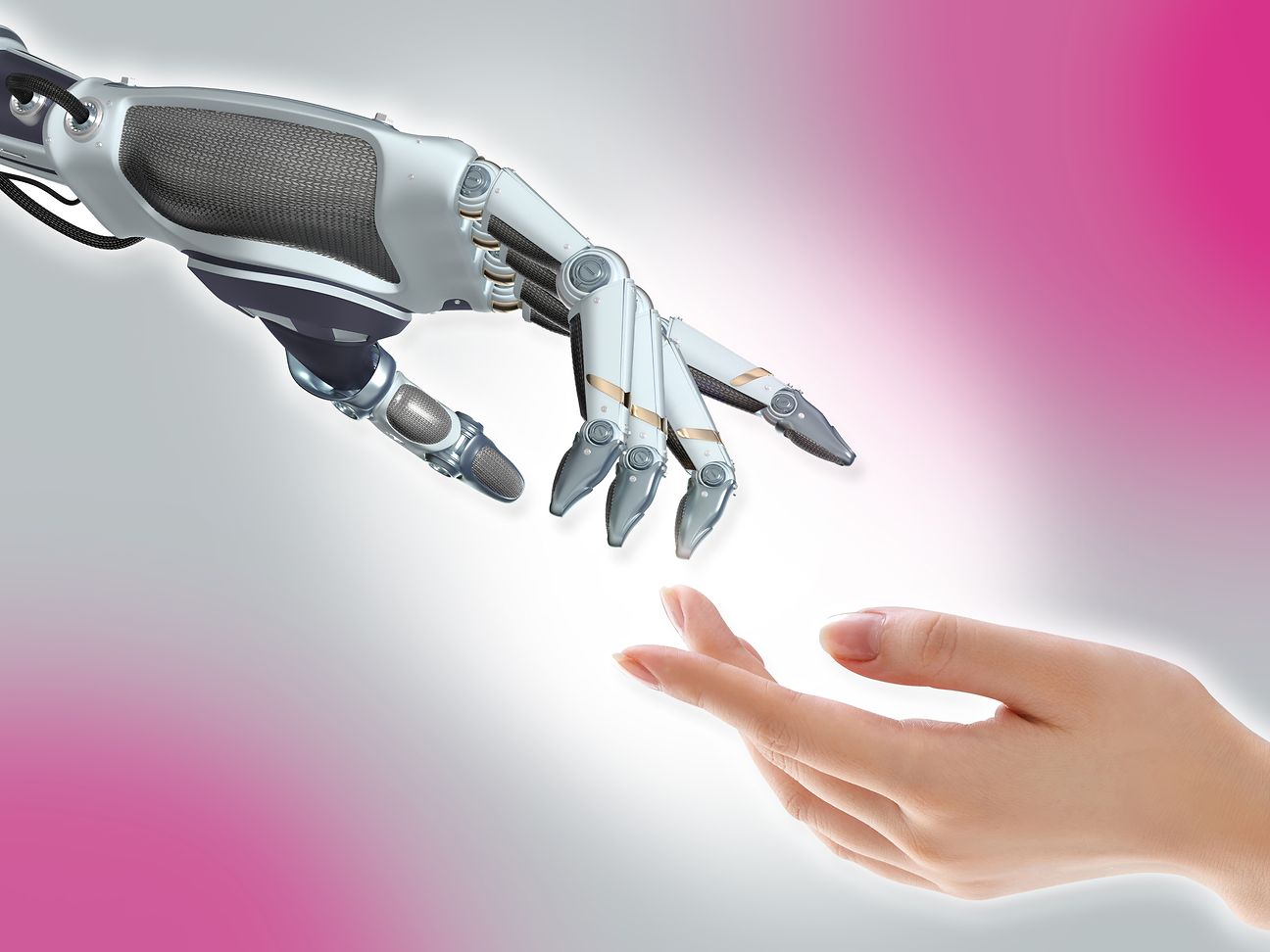

AI creates space for empathy
Interview with thriller author Frank Schätzing
Mr. Schätzing, very shortly, could you complete the following sentence: My biggest hope for AI is?
Frank Schätzing: That it will relieve us in such a way that we will have more time for what really matters and that is our humanity.
And the biggest fear related to AI?
Frank Schätzing: That it will become smarter than we are but will not act in our best interest.
So if it could develop self-awareness, this machine, then you would be afraid it could dominate us or that it would be of use to us?
Frank Schätzing: Well, if an AI were to develop self-awareness that would not necessarily be a bad thing. For the time being I’d assume that we will succeed in programming an AI in such a way that if it were to improve itself independently, it will continue to work in our best interest, that it will develop ideas we might not think of ourselves to facilitate our everyday life, to improve disease diagnosis, to develop better therapies, improve the management of our financial system, to be better than we are in many jobs that humans shouldn’t have to do anymore, to relieve us of these tasks. And if it should develop self-awareness, and I am convinced that it will at some point, also in that case there is the chance that we have programmed it in a way that allows us to communicate with it and that the objectives and intentions it will then have will at least not clash with ours. But of course the risk remains, if for a moment we accept this remote vision of a machine that develops self-awareness as given, that it may have intentions and pursue targets that clash with ours. In that case we would have a problem, because then machines would surely have an advantage over us.
And if we visualize this future, and many people are afraid of it, could that not also be a result of us underestimating ourselves as humans?
Frank Schätzing: Well, as a matter of fact we as humans are perfectly able to implement incredible things in the field of technology. If you think about where we were 200 years ago, 100 years ago and even 50 year ago with regards to technology we have to establish that the pace of development, the exponent of progress, of technological progress, is becoming steeper. We’re creating incredible technologies within very short periods of time. The problem is that we are incapable of following them socially, so they are ahead of us, our self-created homunculi, our self-created inventions are basically superior to us. And then we always need so much time to adapt and we’re lagging behind.
Lagging behind - so do we allow too much to be taken off our hands? Will we languish as lazy people if AI takes everything off our hands?
Frank Schätzing: No, we have to establish that today we are surely the busiest society there ever was. I don’t think that ever before in the history of humankind there was another society, another global society that has worked as much as we’re working, from morning until evening or late at night. On the other hand we’re also the most developed high-tech society there ever was. That means technology makes our lives easier in many ways. However, that does not mean it’s making us lazier. And that won’t happen in the future either. Rather, we will find new fields of activity for us, hand in hand with technological progress. We will hopefully discover fields for us that will trigger and promote our empathy more, so that we can spend more time on the question of how we want to act in the best interest of the 10 billion humans that will be living on our planet in 2050. What we as human beings should do to make inequality history and allow everybody to lead a relatively good life. All that will keep us busy and therefore artificial intelligence and technology are very much to be welcomed assuming it relieves us of work that has so far kept us from succeeding.

